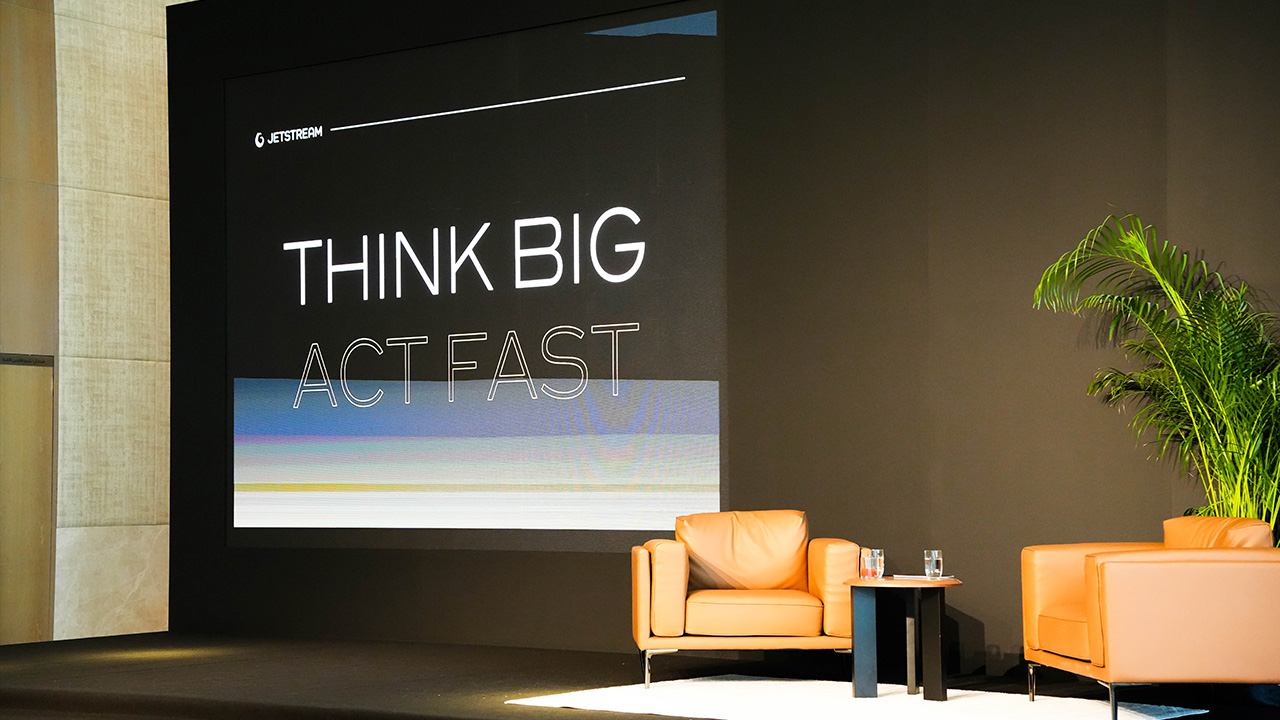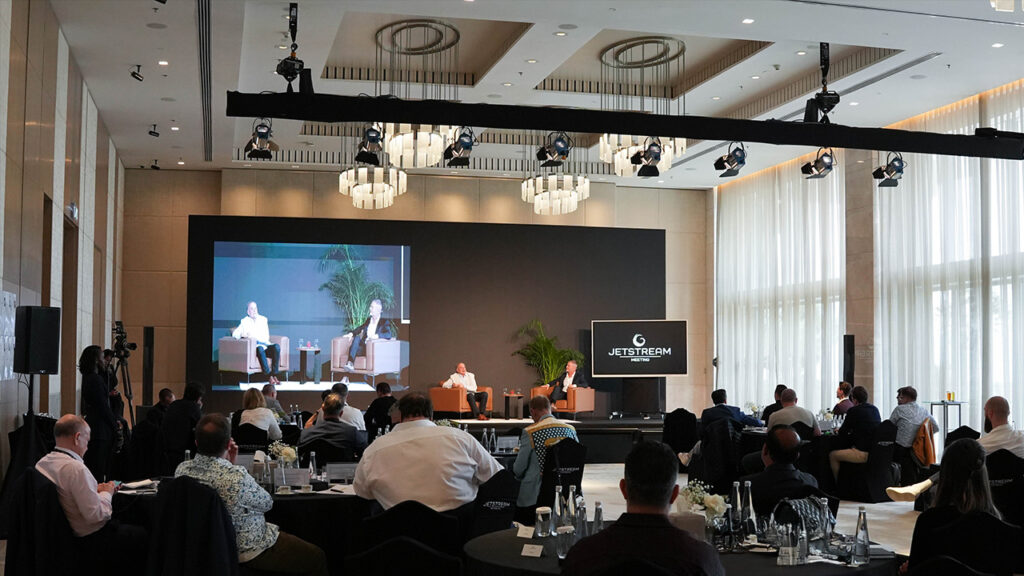"Doubters don't win, winners don't doubt." - Dirk Kreuter
Markets change, technologies overtake each other, but one factor remains constantly decisive: the mindset. Dirk Kreuter has supported tens of thousands of salespeople, managers and entrepreneurs over more than three decades.
In doing so, he repeatedly observed that sustainable success is not based on luck or chance, but on four clear principles of thought and action. Those who internalise them remain capable of acting even in times of crisis and continuously expand their entrepreneurial flight altitude.
1. radically banish negativity
Crisis reports are omnipresent - inflation, geopolitical conflicts, supply bottlenecks. But top performers differ from the average by not constantly feeding their brains with negative energy. Because every piece of bad news activates the Fear centre in the limbic system. If this centre is permanently irritated, it blocks precisely those areas that are responsible for creativity and problem-solving skills.
An entrepreneur who already has messages ticking while making coffee in the morning enters the office with a subliminal level of stress. Those who consciously filter, on the other hand, create a real mental runway. One simple practice is to only check the news once a day. in a short, curated slot to consume.
It is even more powerful, Actively stop destructive conversations. A long-time friend of Dirk Kreuter has made it a rule to tell his wife only positive aspects of the day after work. He explains: "If I repeat the negative scenes, I relive them for a second time and put a strain on my partner at the same time."
Experience shows: Really important information finds its way to us, even if we don't follow the news fireworks around the clock. Blocking out negativity creates space for clarity and determination - two prerequisites for entrepreneurial growth.
2. train your eye for opportunities
Looking at successful people every disruption as a potential advantage. Let's take the InflationMany businesses are reluctant to adjust their prices. Customers are much more likely to accept moderate mark-ups in this phase because they are feeling the general inflation anyway. Skilfully communicated, the inflation rate becomes a legitimate argument for higher margins.
Another example is the labour market. Numerous corporations and SMEs are complaining about a shortage of skilled labour - at the same time, especially in economically turbulent times Top employees suddenly open to new perspectives. Some members of the Jetstream network have capitalised on this effect and set up branches in western Ukraine. There they find highly qualified developers who are on the lookout for reliable employers due to declining foreign investment.
The View of opportunities is not an innate gift, but an exercisable muscle. You can do this by regularly asking yourself: Where is the opportunity in this problem? Teams that meet weekly for a "Upside round" The reflex to immediately look for leverage behind every headline develops surprisingly quickly.
"Are you playing to win - or are you playing not to lose?" asks Dirk Kreuter provocatively.
Those who only want to avert damage cut budgets, freeze projects and lay off employees. Those who want to win invest anti-cyclically, hire top employees and build up capacity - precisely when the competition slows down in panic mode.
3. large targets as a natural focus filter
Distraction thrives on medium ambitions. If the bar is set low, a small stumbling block is enough to miss the daily target. Oversized goals, on the other hand, create a pull: Every action is automatically orientated towards the great North Star.
Dirk Kreuter speaks here of the "Four F formula". Targets should captivating be emotionally electrifying. They may terrifying so that they catapult us out of our comfort zone. At the same time, they must focussedmeasurable, and ready scheduledt be.
One example: "We are quadrupling our turnover in three years by opening up three new foreign markets and achieving a gross profit margin of 50 per cent."
Entrepreneurs who take this approach find that everyday tasks suddenly become less relevant. Instead of answering every email immediately, the question is whether the answer will actually help to quadruple turnover. A plumbing company from the Jetstream environment set itself the goal of reducing its quotation submission time from two weeks to two days. After just twelve months, they were already at 48 hours; the order rate rose by 41 % because customers perceived the speed as a sign of quality.
Such progress can only be made if Progress made visible becomes. Quarterly strategy workshops, daily focus check-ins or a whiteboard with the three most important daily levers keep the big goal at the centre of attention.
4th Act Fast - Speed beats perfection
"While the intellectuals are still discussing strategy, the fools have already stormed the castle."
This quote illustrates a principle: Information is only valuable when it is transformed into action. In concrete terms, this means that there must be no days - sometimes not even hours - between the decision and the first implementation step.
The comparison between traditional car manufacturers and Tesla provides an impressive example. While a large corporation has to convince internal committees, data protection officers and works councils before a software update can go live, Tesla rolls out a new version within a few days and collects feedback for the next cycle in parallel.
Speed becomes a competitive advantage - and a magnet for top employees who prefer to work on real solutions rather than paper constructs.
Companies that Act-Fast culture often start with an introduction to the 72-hour ruleEvery new idea must undergo a pilot test within three days. Clearly specifying ownership and agreeing a fixed deadline prevents innovations from being delayed. Mistakes are not penalised, but documented so that they do not occur again at the next trial.
Final thoughts
Blocking out negativity, cultivating an eye for opportunities, setting big goals and acting with lightning speed - these four principles act like a mental amplifier. They multiply any sales or marketing strategy and ensure that opportunities are not only recognised but also consistently exploited.
"Successful people implement quickly!" - Dirk Kreuter
The good news: Each of these principles can be trained.
The better one: It is much easier in an environment of entrepreneurs who already operate according to these rules.
Next step: Mindset meets network
If you don't just want to read this mindset, but live it, you'll find the ideal environment in the Jetstream Membership. Here you will meet people who avoid negativity, chase opportunities, celebrate big goals and realise them without compromise - day after day.




